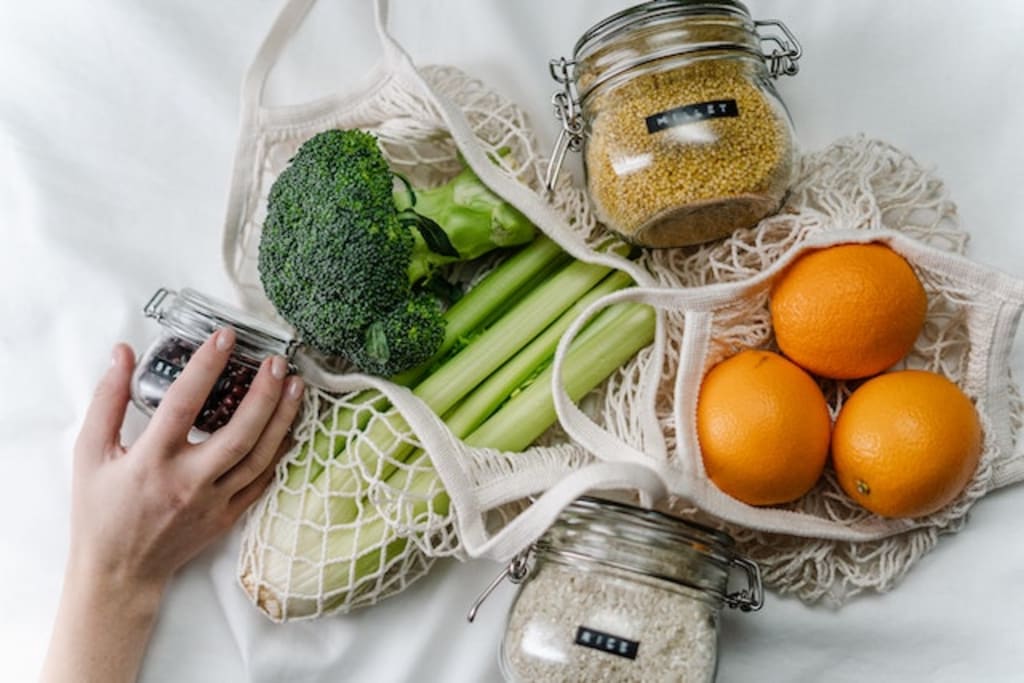The Ultimate Guide to Zero-Carb Foods on a Keto Diet
The Ultimate Guide to Zero-Carb Foods on a Keto Diet

The Ultimate Guide to Zero-Carb Foods on a Keto Diet
I. Introduction
• Briefly explain the importance of keeping carbs low in a keto diet
• Mention the need for a hard reset in eating habits
II. Counting Carbs on a Keto Diet
• Address the concern of counting every single carb
• Emphasize the importance of tracking macros and being mindful of carb intake
• Introduce the strategy of choosing mostly keto-friendly foods with little to no net carbs
III. The Ultimate List of Zero-Carb Foods A. Meats 1. Beef, fowl, and pork as protein sources 2. Less common meats for variety and interest 3. Note about organ meats and glycogen content in liver 4. Importance of opting for grass-fed and pasture-raised meats 5. Cured and dried meats as occasional choices, with a caution about ingredients
B. Seafood 1. Fresh and tinned seafood as protein sources 2. White flaky fish and fatty fish options 3. Recommendation for wild caught salmon and sardines without additives
C. Keto Snacks 1. The need for occasional snacks 2. Low-carb snack options, including pepperoni, pork rinds, bone broth, and more 3. Reference to a comprehensive on healthy keto snacking
D. Healthy Fats 1. Importance of healthy fats in a balanced keto diet 2. Zero-carb fats to include in meals 3. Suggestion to avoid vegetable, seed, and nut-based oils
E. Flavor Enhancers 1. Carb-free spices for adding flavor 2. Caution about spice blends with added sugars 3. Mention of condiments like sugar-free hot sauces and mustard
F. Sweeteners 1. Eliminating sugars but still adding sweetness 2. Zero-carb sweeteners to consider 3. Reminder to choose products without additives
G. Zero-Carb Drinks 1. Wide range of zero-carb drink options 2. Examples include water, coffee, tea, energy drinks, and diet soda 3. Note about alcohol consumption and its impact on fat burning
IV. Conclusion
• Recap the importance of choosing zero-carb foods on a keto diet
• Encourage readers to use the provided guide as a resource
The Ultimate Guide to Zero-Carb Foods on a Keto Diet
The one golden rule in a keto diet is to keep carbs low. This doesn't just mean cutting out bread, pasta, and grains; it means truly giving your eating habits a hard reset. Perhaps one of the most daunting elements of the keto diet for people can be the idea that they have to count every single carb. We do encourage you to track your macros and be mindful of your carb intake. But there is one simple strategy that helps to clear up any confusion around how much of what foods you should and shouldn't be eating: choose mostly keto-friendly foods that have little to no net carbs. There are so many low- and no-carb options; you have hundreds of delicious choices to choose from!
To help simplify things and make your keto journey as easy as possible, we've put together the ultimate list of zero-carb foods for you to enjoy. Before we begin, it's important to note that nearly every kind of food has some sort of trace carbohydrate content. When we say "zero carbs," we are talking about foods and beverages that contain less than one gram of net carbs per serving, and foods that aren't usually consumed in large enough quantities to negatively affect your daily carb consumption. Now, let's take a look at zero-carb foods, starting with meats:
Meats
Beef, fowl, and pork are familiar meats that provide you with protein, which is essential for a balanced keto diet. They are versatile options that can be incorporated into various dishes. Additionally, less common types of meats, such as veal, lamb, game meats like venison and elk, and even exotic meats, can help add variety and interest to your meals. Exploring these unique protein sources can make your keto diet more exciting and enjoyable.
It's worth mentioning that organ meats can also be a good choice in terms of nutritional value. However, it's important to note that liver contains glycogen, which is a source of net carbs. If you decide to include organ meats in your diet, be mindful of the glycogen content and consider it in your overall carb intake.
When possible, seek out grass-fed and pasture-raised meats. They tend to have a higher nutrient profile and healthier fat composition, making them an excellent choice for those following a keto lifestyle.
While it's typically best to avoid processed meats, there are some cured and dried meats that can be enjoyed occasionally on the keto diet. Bacon, salami, hot dogs, deli meats, jerky, and canned meats are fan favorites due to their convenience and rich flavors. However, it's crucial to read the ingredients list carefully. Put back anything that contains dextrose, starch, sugar, high fructose corn syrup, or maltodextrin, as these additives can increase carb content.
Always try to buy all-natural processed meats that contain carb-free ingredients. This ensures that you're staying true to the keto principles while enjoying these tasty options.
Seafood
Fresh and tinned seafood not only provide protein but also offer beneficial omega-3 fatty acids. Including seafood in your keto diet can contribute to a healthy heart and overall well-being. There is a wide variety of seafood to choose from, each with its own unique taste and texture.
White flaky fish like cod, flounder, sole, and haddock are delicious and can be prepared in various ways. On the other hand, fattier and more flavorful fish, such as salmon, tuna, halibut, swordfish, sardines, Spanish mackerel, and trout, offer a rich source of omega-3 fatty acids.
For the healthiest option, opt for wild-caught salmon and sardines, whether they are canned or fresh. These varieties are less likely to contain additives or unwanted ingredients. By choosing quality seafood, you can enjoy the benefits of zero-carb foods while nourishing your body with essential nutrients.
Keto Snacks
While we recommend against frequent and habitual snacking on a keto diet, we understand that occasional snacks can be a part of your lifestyle. Although many on-the-go bites you once relied on are now off the table, there are plenty of keto-friendly snacks to take their place.
Some low-carb snack options include pepperoni slices, keto pork rinds, bone broth, smoked fish, canned fish, canned meat, and preserved meat products like jerky, biltong, pemmican, and meat sticks. These snacks offer convenience, satiety, and a burst of flavor, making them great choices when you need a quick bite.
For a more comprehensive look at good keto snacking habits, you can refer to the Ruled.me titled, "50+ Healthy Keto Snacks to Help with Ketosis." This resource provides an extensive list of delicious and satisfying snacks that fit perfectly into your keto lifestyle.
Healthy Fats
Healthy fats are the cornerstone of a balanced keto diet. They provide energy, promote satiety, and support various bodily functions. Incorporating zero-carb fats into your meals is essential for maintaining ketosis and overall well-being.
Some zero-carb fats you should reach for at almost every meal include:
• Extra-virgin olive oil: A versatile and heart-healthy oil that adds flavor to salads, vegetables, and cooked dishes.
• Grass-fed butter and ghee: Rich in beneficial nutrients like vitamins A, D, and K2, these fats add a creamy and delicious touch to your meals.
• Coconut oil: A popular choice in keto cooking, coconut oil contains medium-chain triglycerides (MCTs) that are easily converted into energy by the body.
• MCT oil: Derived from coconut or palm kernel oil, MCT oil provides a concentrated source of MCTs, which can enhance ketone production and energy levels.
• Avocado oil: Known for its high monounsaturated fat content, avocado oil is a great option for cooking at higher temperatures.
• Animal fats (like lard): Traditional fats like lard can be a flavorful addition to your cooking and provide a good balance of saturated and monounsaturated fats.
It's important to note that vegetable, seed, and nut-based oils are unstable when exposed to high heat and can release harmful toxins. To maintain the integrity of these fats, it's best to avoid them in your cooking and opt for the zero-carb fats mentioned above.
Flavor Enhancers
Your spice cabinet can be a treasure trove of flavor enhancers that are virtually carb-free. These spices can add depth and excitement to your keto meals without compromising your carb intake. When selecting spices, avoid blends that contain added sugars and opt for individual spices instead.
Some carb-free spices to include in your keto cooking are salt and black pepper, dried oregano, rosemary, thyme, basil, chives, and dill. These versatile spices can be used in a variety of dishes, from savory meats to flavorful vegetables. However, it's important to note that chili powder, curry powder, and cinnamon may contain slightly higher traces of carbs and should be used more sparingly.
In addition to spices, some condiments can also add tons of flavor to your meals with hardly any carbs. Sugar-free hot sauces and mustard are excellent choices that can enhance the taste of your dishes. These condiments are low in carbs and can be used liberally to suit your personal preferences.
Sweeteners
While all sugars are cut out from a keto diet, there are still plenty of ways to add a hint of sweetness to the dishes you prepare. Zero-carb sweeteners can be a valuable tool in satisfying your sweet tooth without jeopardizing your ketosis.
Some zero-carb sweeteners to consider include liquid stevia, monk fruit extract or blends, erythritol, and liquid sucralose. These sweeteners provide the sweetness you crave without adding significant carbs or calories to your meals or beverages. When choosing sweeteners, be sure to read the labels and opt for products that contain no other additives like maltodextrin, which can affect blood sugar levels.
For a more comprehensive list of keto-friendly sweeteners, you can read our article on the topic or refer to reliable resources that provide detailed information on each sweetener's properties and usage.
Zero-Carb Drinks
Staying hydrated is crucial on a keto diet, and the good news is that zero-carb drinks are widely available. Whether you're at home or on the go, there are numerous options to quench your thirst without compromising your carb intake.
Water and sparkling water are obvious choices and should be the foundation of your hydration routine. They are carb-free, refreshing, and essential for maintaining optimal bodily functions.
If you're a coffee or tea lover, you're in luck
About the Creator
Ghulam Abbas
Skilled content writer with 15 years' experience in humanities and motivation. Illuminating insights in literature, history, philosophy, and culture, connecting readers to human experiences. Expertise in motivational writing.
Enjoyed the story? Support the Creator.
Subscribe for free to receive all their stories in your feed. You could also pledge your support or give them a one-off tip, letting them know you appreciate their work.
Reader insights
Outstanding
Excellent work. Looking forward to reading more!
Top insights
Compelling and original writing
Creative use of language & vocab
Easy to read and follow
Well-structured & engaging content
Excellent storytelling
Original narrative & well developed characters
Expert insights and opinions
Arguments were carefully researched and presented
Eye opening
Niche topic & fresh perspectives
Heartfelt and relatable
The story invoked strong personal emotions
Masterful proofreading
Zero grammar & spelling mistakes





Comments (1)
Nice